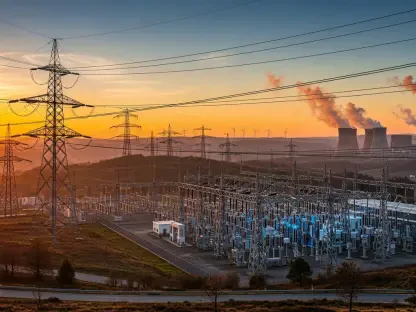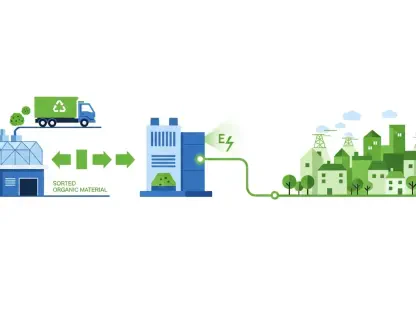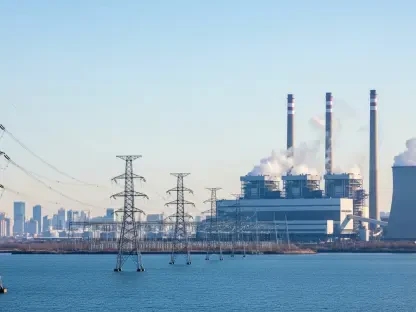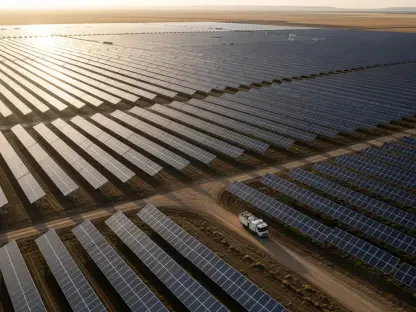The American oil and gas sector is poised for a significant transformation following former President Donald Trump’s electoral victory. Industry stakeholders, who had faced stringent regulations under the Biden administration, are now anticipating a more favorable business environment. This shift is expected to bring about substantial changes in policy, production, and the broader energy landscape of the country.
Renewed Vigor for Fossil Fuel Production
Industry Relief and Optimism
Kirk Edwards, a seasoned oilman from Texas, captures the sentiment of many in the sector. He expresses relief and optimism about the future under Trump’s administration. Edwards contrasts Trump’s approach with Biden’s regulatory efforts, highlighting a more supportive and less restrictive environment for the industry. This perspective is widely shared among industry stakeholders, who see Trump’s policies as a pathway to revitalized fossil fuel production.
Trump’s regulatory rollback promises to dismantle many of the policies that have restricted fossil fuel production. For oilmen like Edwards, this means less bureaucratic red tape and more opportunities for expansion. Additionally, Trump’s administration is expected to expedite the approval process for drilling permits, making it easier and quicker for companies to initiate new projects. The optimism among industry experts also extends to potential new developments, with many companies anticipating an increase in investments and jobs as a direct result of the new administration’s policies.
Deregulation and Business-Friendly Policies
Trump’s victory is seen as a precursor to a laissez-faire energy policy, reminiscent of his initial term. This approach promises accelerated processes for drilling permit approvals, expansions of oil and gas leasing on federal lands, and the lifting of moratoria on new liquefied natural gas (LNG) terminal permits. These measures, previously hindered by Biden’s regulations, are expected to boost the sector significantly. The immediate financial market reactions, with a rise in stock prices for American oil companies, reflect investors’ confidence in a bullish future under Trump’s leadership.
The deregulatory momentum is echoed in the financial markets as the stock prices of major American oil companies surged following Trump’s election victory. Investors are clearly banking on a more favorable regulatory landscape that could lead to increased profits. The lifting of moratoria on new LNG terminal permits is particularly noteworthy as it promises to enhance the United States’ position as a leading LNG exporter. Environmental restrictions that have previously hampered growth are expected to be relaxed, providing the industry with the freedom to expand operations and explore new opportunities. This change is predicted to not only invigorate the domestic market but also strengthen the U.S. presence in global energy markets.
Challenges and Strategies for Transition
Impact on Clean Energy Initiatives
Despite the anticipated policy changes, immediate oil production levels may not see drastic alterations, as they have remained robust even during Biden’s tenure. However, the long-term impact is expected to solidify the prominence of oil and gas in the American and global energy mix. Joanne Salih, an energy consultant with Oliver Wyman, emphasizes the critical need for a reliable energy supply. She notes that abrupt transitions to clean energy could lead to destabilizing volatility, a point increasingly recognized by global governments.
The resilience of oil production levels under Biden’s administration indicates that the industry is capable of maintaining high output even in a regulated environment. However, Trump’s policies are expected to provide a more supportive backdrop for fossil fuel dominance. The conversation surrounding energy transitions is complex, with advocates of clean energy pushing for a rapid shift, while others call for a more measured approach to avoid market volatility and supply chain disruptions. Salih’s insights highlight the need for a balanced strategy that ensures stability while progressively integrating renewable sources into the energy mix.
Political Dynamics and International Commitments
The Trump administration’s potential withdrawal from international climate commitments, such as the Paris climate agreement, has been a pivotal focus. Republicans advocate for these exits to allow less constrained fossil fuel production and avoid burdensome international regulations. However, the complexities of these decisions, including the necessity of a two-thirds Senate majority to reenter the agreements, are acknowledged. This political dynamic adds another layer of complexity to the anticipated policy shifts.
The debate over international climate commitments is poised to escalate as Trump aims to prioritize national interests over global environmental obligations. The potential exit from the Paris climate agreement symbolizes a significant shift, potentially freeing the U.S. from what Republicans see as restrictive regulations on fossil fuel production. However, the complexities of renegotiating or exiting such agreements highlight the intricate balance of national policy and international diplomacy. These decisions would not only influence the U.S. energy strategy but also have broader implications for global environmental efforts and international relations.
The Inflation Reduction Act and Energy Diversification
Targeting Clean Energy Provisions
The Biden administration’s Inflation Reduction Act, which supports clean energy through substantial tax incentives and loans, is expected to be a target for Trump. Specific provisions, like the electric vehicle tax credit, may come under scrutiny. However, Trump may not entirely dismantle the act due to ongoing and upcoming projects, particularly in politically significant states like Texas. This nuanced approach reflects the balancing act between supporting traditional energy sources and acknowledging the progress in renewable energy adoption.
Trump’s strategy is likely to focus on reducing or eliminating regulatory hurdles that have impeded the growth of traditional energy sources while maintaining some level of support for renewables where politically and economically feasible. The Inflation Reduction Act embodies a dual approach to energy policy, aiming to foster innovation in clean energy while still recognizing the foundational role of fossil fuels. By selectively targeting aspects of the act, Trump’s administration may seek to recalibrate energy policy without entirely discarding efforts towards sustainability, striking a balance between economic growth and environmental stewardship.
Embracing a Multi-Pronged Energy Strategy
Mark Menezes, former deputy energy secretary, anticipates that Trump’s administration will uplift a variety of energy sources, including natural gas and nuclear power, in addition to renewables. This multi-pronged strategy aims to offer diversified choices that align with local community preferences, deviating from a one-size-fits-all approach. This strategy underscores the administration’s intent to support a broad spectrum of energy sources while prioritizing fossil fuels.
The emphasis on a multi-pronged energy strategy marks a significant departure from singular policy approaches, embracing the diversity of energy needs across different regions and communities. The inclusion of natural gas and nuclear power highlights the administration’s commitment to reliable and stable energy sources, while also supporting renewables to a certain extent. This approach aims to accommodate varying local energy preferences and bolster the energy infrastructure to ensure consistent and dependable supply. It is expected that this holistic strategy will not only support economic and industrial growth but also address environmental concerns in a more flexible and pragmatic manner.
Organizational Clarity and Systematic Approach
Overcoming Past Administrative Hurdles
Despite previous administrative hurdles within Trump’s interior department, marked by errors and inter-departmental conflicts, the incoming administration is likely to adopt a more systematic and thorough approach. Supported by a more unified Republican front, this renewed organizational clarity aims to eschew past mistakes. Ensuring that ambitious deregulation and expansion plans translate effectively into reality is a key focus for the administration.
The effort to overcome past administrative challenges indicates an acknowledgment of the need for more cohesive and efficient governance. The anticipated improvements in organizational structure and processes are expected to significantly enhance the administration’s ability to implement its energy policies effectively. With a clear mandate and cohesive support from the Republican Party, the Trump administration aims to avoid the pitfalls of its previous term, leading to smoother execution of deregulation initiatives. This systematic approach is poised to ensure that the intended regulatory changes and expansion efforts are successfully realized, fostering a more robust and efficient energy sector.
Industry Support and Political Cohesion
The American oil and gas industry is on the cusp of a major transformation following the electoral win of former President Donald Trump. Under the administration of President Biden, the sector had been subject to rigorous regulations aimed at curbing environmental impact and promoting cleaner energy alternatives. These regulations presented numerous challenges for industry stakeholders, often restricting production capabilities and imposing high compliance costs.
With Trump’s victory, however, the industry anticipates a significant shift towards a more conducive business environment. Key players in the oil and gas sector expect a rollback of stringent regulations, potentially leading to increased production and investment. Such changes are likely to revitalize the industry, driving growth and bolstering the country’s energy independence.
Policy adjustments under Trump could also impact broader energy dynamics, affecting everything from domestic energy prices to international trade relations. This impending transformation holds the promise of reshaping the energy landscape of the United States, bringing substantial implications for the sector and the economy at large.









